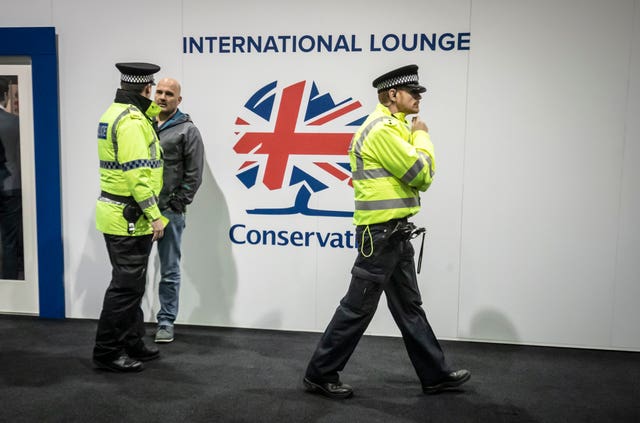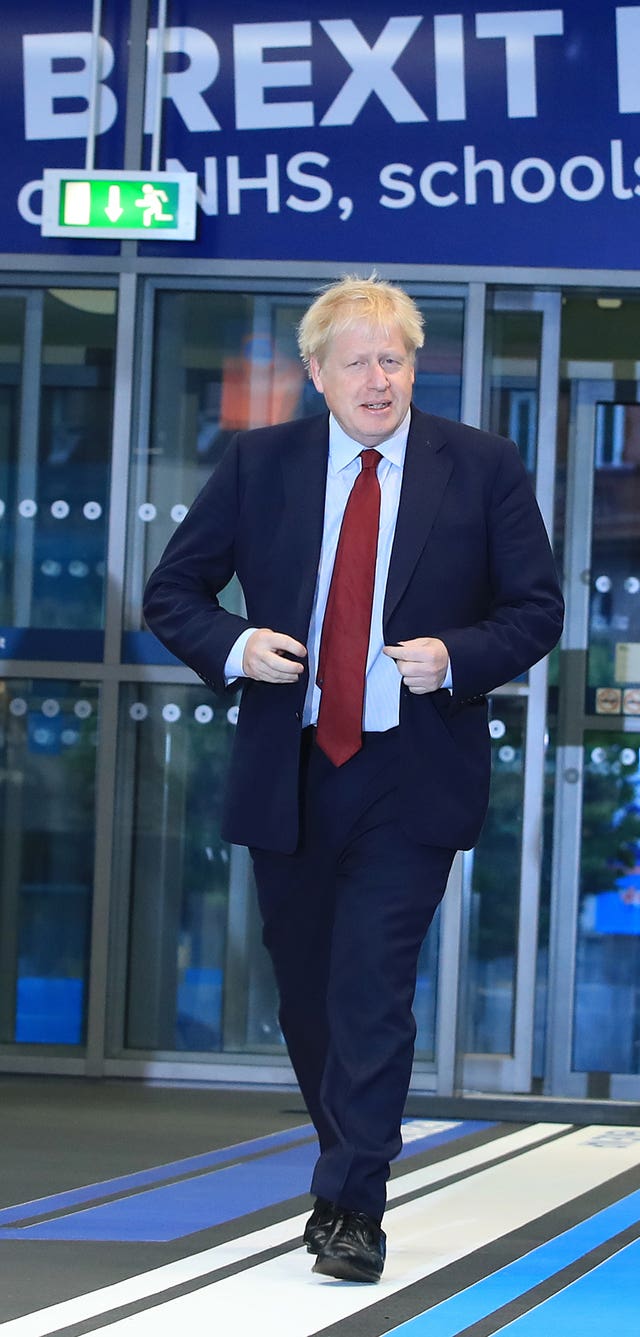Under-pressure Johnson: Lots of stuff being thrown at me due to Brexit
Prime Minister Boris Johnson insisted things are going ‘much better’ than critics claim.

Boris Johnson has again denied squeezing the thigh of a female journalist – even though he could not remember the lunch where the incident allegedly occurred.
The Prime Minister insisted that women voters can “absolutely” trust him as he hinted that allegations about his conduct have been made because of attempts by some people to “frustrate” Brexit.
The Prime Minister said claims he squeezed Charlotte Edwardes’ thigh at a lunch 20 years ago were not true, but he had “no memory whatsoever” of the event.
The claims have risked overshadowing the Conservative Party conference in Manchester, and he also faced allegations about his relationship with American entrepreneur Jennifer Arcuri and whether she enjoyed preferential treatment while he was mayor of London.
In a further blow to the Tories, on a day when they tried to burnish their credentials as the party of law and order, senior MP Sir Geoffrey Clifton-Brown was ordered home in disgrace after clashing with conference security staff.
The party said his conduct was “totally unacceptable” after an altercation as he tried to get his fiancee into a restricted area of the venue.

Reflecting on the pressure he was under, the Prime Minister accepted it was “inevitable” that he would come under “shot and shell”, but said he thought it was “raining down” on the Government because of his vow to take the UK out of the EU on October 31.
Mr Johnson faced a series of broadcast interviews on Tuesday on the eve of his keynote conference speech.
In response to Ms Edwardes’ claims about an incident at the Spectator’s HQ shortly after Mr Johnson became the magazine’s editor, Mr Johnson told ITV the allegation was “absolutely not true” even though he could not remember the lunch.
Asked if women could trust him, he said “absolutely” and claimed his administration as mayor of London was “more or less a total feminocracy”.

He said: “I’m not going to deny that lots of stuff is being thrown at me at the moment but this is a very turbulent time in British politics and people will want to try and knock Government off course because at the moment the task is a difficult mission, but a vital mission, that is to get Brexit done by October 31.”
Mr Johnson said he did not want to “impugn the motives and the people who make these comments, nor do I wish to minimise the importance of the issues that are raised, but they’re not correct”.
Asked why he thought the allegations were surfacing now, he told LBC: “I think there’s a very good reason and that is that I’ve been tasked, one way or the other, to get Brexit done by October 31 and there are quite a lot of well-meaning and highly intelligent people who, basically, think that that would be something they don’t wanna see and I think that there is a, a concerted effort now to frustrate Brexit.”
Despite the difficulties he has faced – including repeated Commons defeats and the humiliating Supreme Court ruling that his suspension of Parliament was unlawful – Mr Johnson told the BBC things were going “as well as could be … if not better”.
He added: “Things are actually much much better… than the political situation might lead you to believe.
“Unemployment is at record lows. Foreign direct investment is at record highs. We’re seeing this country at the cutting edge of innovation in everything from battery technology to bio science, we are doing fantastically well in so many ways.
“And (if) only we could all come together, get Brexit it over the line, I think that fevers would cool, tempers would come down. And it would be a great thing.”
On Sky News, he defended his use of the term Surrender Act to describe the law aimed at preventing him taking the UK out of the European Union on October 31 against Parliament’s wishes.
“I think it’s reasonable to describe it in those terms,” he said.
“Because what it does, as you said just now is it not only obliges or would oblige the UK to stay in the EU, but on the terms set by the EU and for a duration to be decided by the EU.”
Commons Leader Jacob Rees-Mogg also defended the term, telling a conference fringe event that the language used by his party was nothing compared to comments made by Labour MPs and supporters.
“Surrender Bill does not lead to people being murdered, saying a member of Parliament should be lynched is much more likely to lead to people being murdered,” he said.
“The language of the hard left is appalling.”





